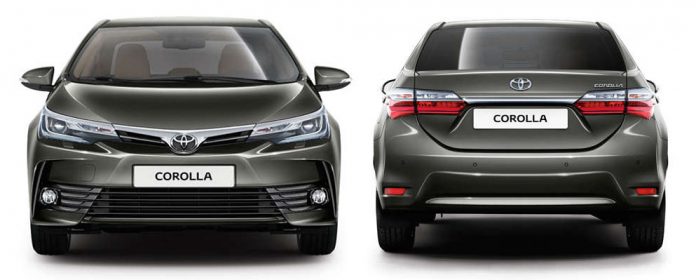KARACHI: The rupee depreciation has forced Indus Motor Company (IMC) to jack up prices of 1300-1600cc cars by over Rs 50,000 ahead of the new year.
Revised prices for Toyota Corolla Xli, Gli and Gli automatic transmission now stand at Rs1.81 million, Rs1.94 million, Rs2.02 million respectively. And Toyota Altis 1.6 is now priced at Rs2.19m compared to Rs2.14m previously.
According to IMC CEO, Ali Asghar Jamali the prices were jacked up due to 7-8 percent rupee devaluation against the dollar, which raised prices of imported components used in assembling cars. He added rupee devaluation had also increased prices of locally produced parts, which use imported raw material for its manufacturing.
Pak Suzuki spokesperson has told this correspondent that the new adjusted price to rupee devaluation has not been discussed so far at the company. But currency devaluation was certainly having a negative impact on cars’ costs.
According to financial analyst of Insight Securities Zeeshan Afzal, prices of all cars will jack up including imported used cars since the cost has increased following rupee devaluation.
“The net profits of auto makers are around 5-7 percent. The rupee has been depreciated by the same margin. So if an automotive company doesn’t raise its prices then it won’t accrue any profit from sales. So every player in the industry will increase prices of their cars,” Afzal said.
Pakistan’s auto industry is heavily dependent on imports of auto parts and completely knocked-down (CKD) kits, which constitute around 30 per cent to 50 per cent of their raw material cost and a sudden depreciation in the value of rupee will have a negative impact on the profits of the company.
The rupee has depreciated 5.2 per cent since December 8 against the US dollar, which has resulted in stock price correction of HCAR, PSMC, and INDU by 5.9 per cent, 5.9 per cent, and 3.4 per cent to date, respectively. Meanwhile, the index has declined by 1 per cent.
Auto assemblers have recorded high returns in last four years due to a stable rupee against dollar, low discount rates, rising per capita income and GDP and introduction of new models.





“The net profits of auto makers are around 5-7 percent. The rupee has been depreciated by the same margin. So if an automotive company doesn’t raise its prices then it won’t accrue any profit from sales. So every player in the industry will increase prices of their cars,” Afzal said.
Seriously flawed assumption. Even if Rupee has depreciated by 5-7%, how can it directly mean increase in prices by same margin or else no profits? From accounting perspective, with this depreciation only the cost of importing CKD kits will increase which will only partially increase the cost of raw materials – which is one of the many items in Cost of Goods sold (among others such as the cost of running the plant, labor’s wages, factory overheads, repairs, depreciation, marketing, sales promotion, distribution, freight etc etc).
Even cost of raw materials include the locally available spares, parts, paint etc which goes into a car manufacturing and all of that will be unchanged. Cost of CKD kits have around 70-80% weight in cost of materials procured, but in cost of goods sold, this % is less than 50%. And COGS itself are just 70-80% of net sales.
So all that means that even if sales volumes do not increase, profit margins will go down by just 1-2% from 5-7% depreciation. Actual profits however will likely increase as sales volume is growing. Basic accounting!